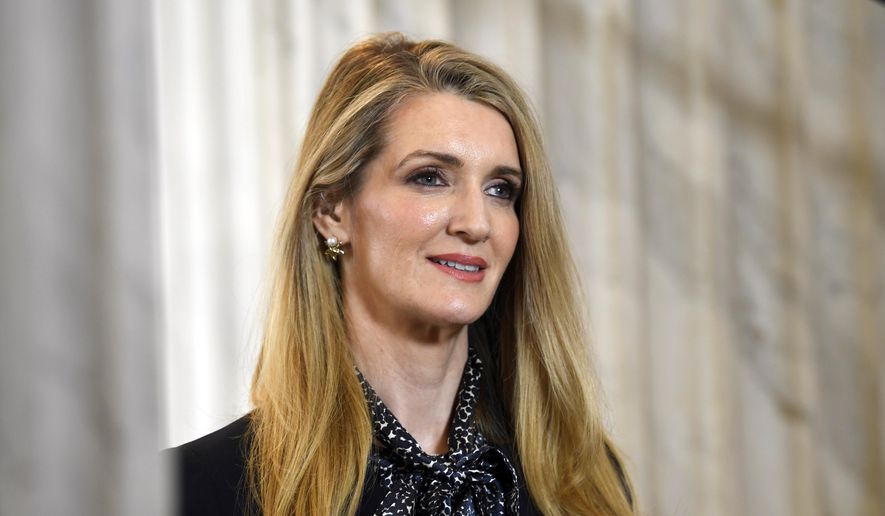WASHINGTON (AP) - The husband of Georgia Sen. Kelly Loeffler recently acquired as much as $415,000 in stock in DuPont de Nemours, a chemical company that manufactures protective equipment in exceedingly high demand because of the coronavirus pandemic.
The transaction, detailed in a mandatory disclosure the Republican filed late Tuesday, comes as senators in both parties have faced questions about the stock transactions they made in the weeks before the coronavirus upended the U.S. economy, wiping out jobs and personal wealth.
Senate Intelligence Committee Chairman Richard Burr, R-N.C., whose sales of as much as $1.7 million in stocks have come under the most scrutiny, requested an ethics review of his actions in the days before markets dropped in February. The FBI has also contacted him about the sale. He has denied trading on inside information.
Like Burr, Loeffler came under fire last month after she and her husband dumped substantial portions of their portfolio. The transactions came after a series of private congressional briefings on the then-burgeoning pandemic.
The new purchases disclosed by Loeffler include the purchase of DuPont stock, a company that could see profits soar from the sale of protective equipment as hospitals search for desperately needed supply. Loeffler says she had no involvement in the trades.
“Her stock portfolio is managed independently by third-party advisors,” said spokeswoman Kerry Rom. “Sen. Loeffler continues to operate with integrity and transparency –- following both the spirit and the letter of the law.”
Their latest financial moves are likely to give more ammunition to critics of the newly appointed senator, who is on the ballot this year. Her top Republican primary rival, Rep. Doug Collins, previously accused her of “profiting” while “people are losing their jobs, their businesses, their retirements.”
The mandatory disclosures senators must make do not detail specific amounts of stock sales or purchases. Instead, they give a range in dollars of the value of each transaction.
Tuesday’s filing shows Loeffler’s husband purchased anywhere between about $166,000 and $415,000 in DuPont, spread across four transactions in late February and early March. The company’s website says “thousands of DuPont employees are working around the clock in all parts of the world to increase capacity of protective garments during this time of high demand.”
The purchase represented just a portion of their recent financial activity. They also bought as much as $250,000 in Chevron, as much as $50,000 in Amazon and as much as $350,000 in CME Group, the new disclosure shows.
At the same time, they sold between about $100,000 and $250,000 in DocuSign stock, sold as much as $150,000 in Facebook stock and unloaded holdings in retail stores like Ross, TJ Maxx and Lululemon.
Loeffler’s husband, Jeffrey Sprecher, is chairman of the New York Stock Exchange. A separate disclosure made Tuesday reveals he recently sold between about $6 million and $30 million of stock in its parent company, Intercontinental Exchange. Loeffler, who also worked for Intercontinental Exchange, sold between $5 million and $25 million in stock from the company while exercising an option that gave her as much as $25 million more. Stock options are one of the primary ways the couple is paid by the company.
The couple’s new investment in DuPont drew notice from government watchdog groups, particularly because they also recently invested in a tech company that offers telecommuting software that could also benefit from the pandemic.
“I think it deserves an extra amount of scrutiny because when she did the first round of sales after she got nonpublic information, she also bought a stock in a telecommuting company,” said Jordan Libowitz, a spokesman for the group Citizens for Responsibility and Ethics in Washington, which filed a Senate ethics complaint against Loeffler and Burr last month.
“This would follow that pattern, which is why it does raise an eyebrow, and it’s one of those things that even if it doesn’t go to the level of breaking the law or any rules, it looks bad.”




Please read our comment policy before commenting.